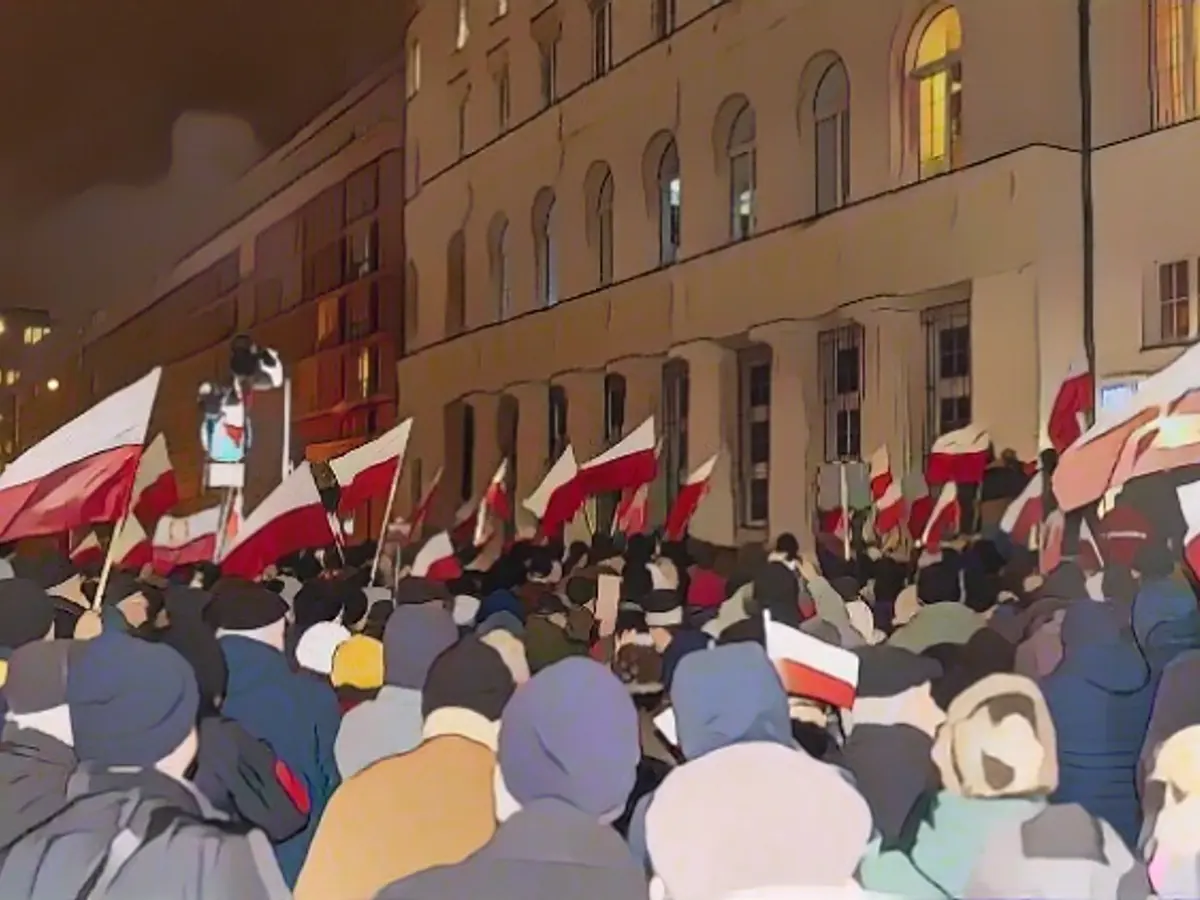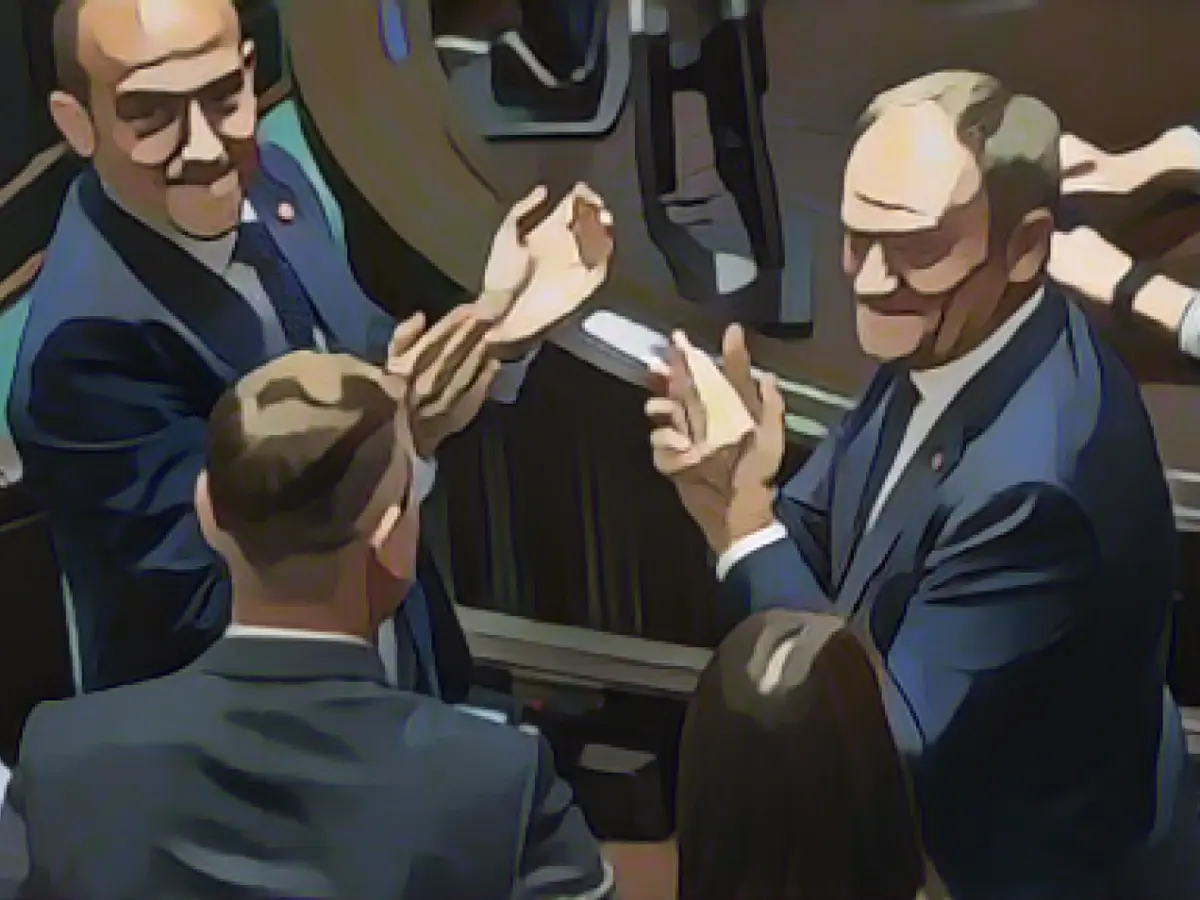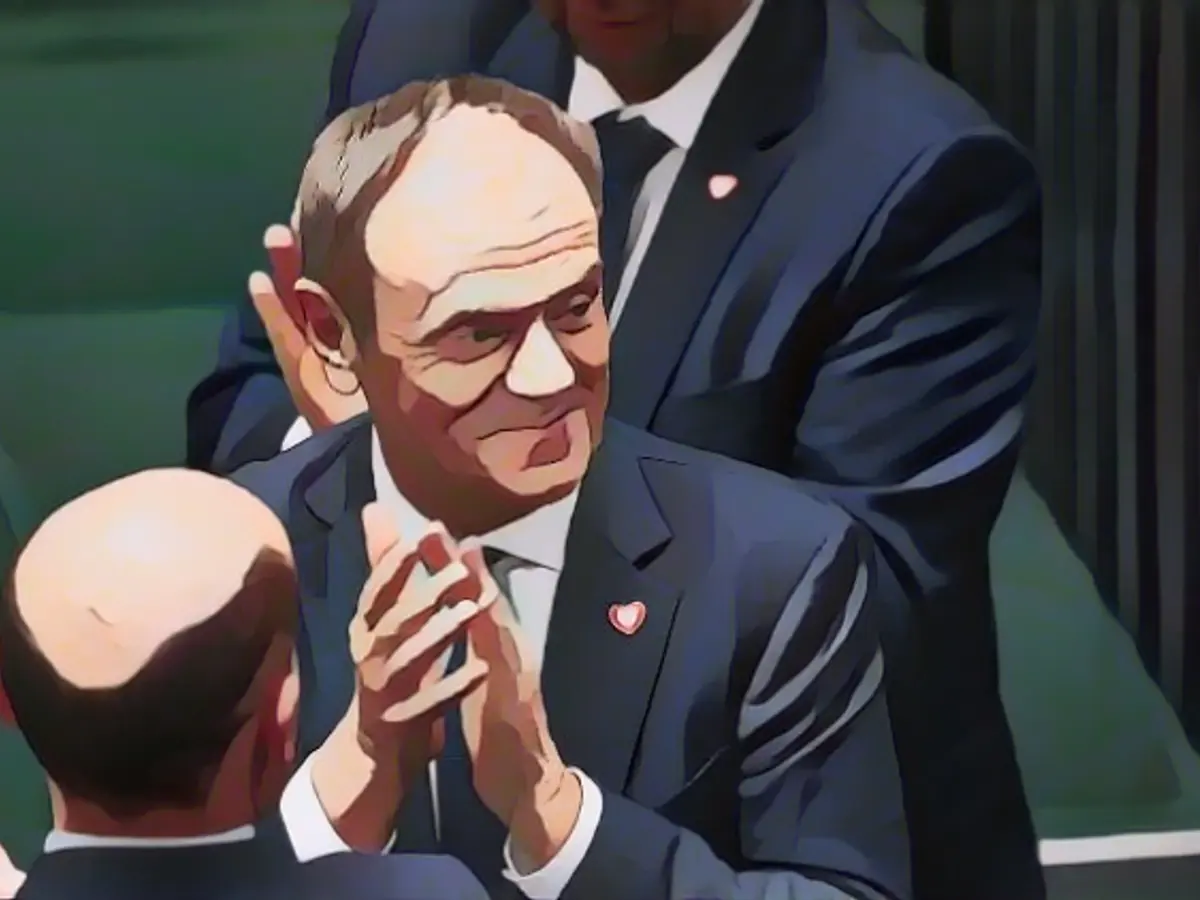Poland's new government, led by Donald Tusk, is determined to shake off the authoritarian tendencies of its predecessor, particularly in the realm of public media. Following a contentious election, Tusk's three-party alliance emerged victorious, and the new administration is ready to tackle the issue of biased public media head-on.
One week after the change of power, Parliament passed a resolution aiming to restore impartiality to public media. Critics argued that under the former PiS government, public broadcasters and the PAP news agency had succumbed to party propaganda, with the Ministry for State Participation, which has ties to these organizations, bearing the brunt of the blame.
The restructuring of public broadcasters is a top priority for Tusk's pro-European government. Tusk himself stated that the current state of public service media does not warrant taxpayer funding. The PiS party, which lost power in the election, tried every trick in the book to delay the change at the top of the state after its defeat.
The criticism against the public media is not new; international organizations have long pointed out their one-sided coverage during election campaigns. According to a report by the European Center for Press and Media Freedom (ECPMF), the PiS government had effectively transformed the public media into a "propaganda arm," using it to promote its interests while belittling critics.
The OSCE election observer mission also chastised the public broadcaster for favoring the PiS in its reporting and showing open hostility towards the opposition. Events were consistently presented in a distorted and biased manner. In the aftermath of the parliamentary session, PiS MPs gathered in front of the TVP headquarters to protect it, as they claimed on social media.
This situation is far more complex than simply reforming public media. The PiS government had captured public media and turned it into a propaganda machine, leading to significant deterioration in political rights. The PiS administration also politicized public institutions, leading to employment and business opportunities being doled out based on political affiliation.
Despite court rulings and external interventions from institutions like the European Court of Justice and the European Commission, the PiS government disregarded the rule of law in some instances. These actions undercut the judiciary's independence, undermined the prosecutorial system, and created a less stable political environment.
Tusk's administration aims to reverse these trends by addressing the restructuring of public broadcasters, with the controversial TVP being a focal point. Alongside this, private media outlets, which managed to maintain their independence under the PiS government, will continue to play a crucial role in maintaining a diverse media landscape and providing different perspectives.
Sources:
Enrichment Data:
The PiS government's manipulation of public media and erosion of judicial independence has long been a source of concern. Critics argue that the capture of public media led to a significant deterioration in political rights, making it a tool for promoting the government's agenda rather than an independent source of information. The government also politicized public institutions, leading to discrimination in employment and business opportunities based on political affiliation.
The PiS administration's disregard for court decisions, including the dismissal of the top prosecutor, undermined the rule of law and the judiciary's independence. This assault on the judiciary was only partially thwarted by the vigorous defense of civil society and advocacy groups, along with external interventions from the European Court of Justice and the European Commission.
The efforts of Tusk's administration to combat propaganda and promote independent journalism are ongoing, with the restructuring of public broadcasters, particularly TVP, being a central component of this initiative. Private media outlets that maintained their independence play a crucial role in maintaining a diverse media landscape, providing a counterbalance to government-controlled media, and ensuring a free flow of information.
These efforts are not without challenges. Despite the restructuring of public media and the promotion of independent journalism, the legacy of the PiS government's actions remains a significant concern. Politicization of public institutions, discrimination in employment and business opportunities based on political affiliation, and undermining the rule of law and judicial independence are lasting effects that the new administration must work to address. The ongoing struggle for media freedom and the rule of law will be a defining feature of Poland's political landscape for some time to come.








